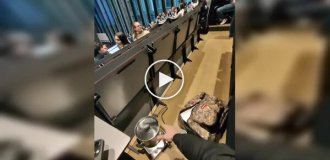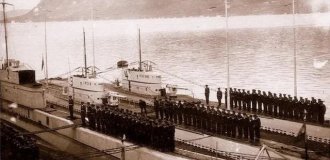Why did the Roman emperors Nero and Vespasian force their citizens to pay mandatory taxes on urine? 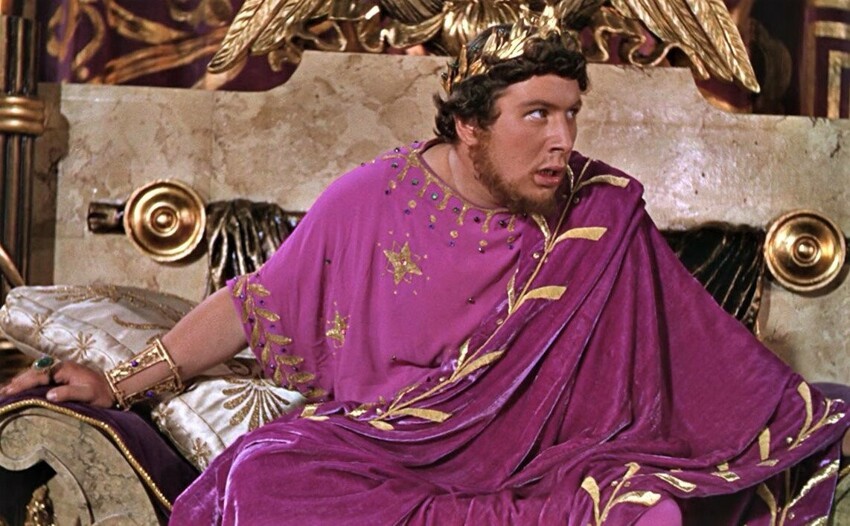
In the 1st century A.D. e., the Roman emperor Nero the first years of his of the board showed himself to be an excellent administrative manager and is loved public, but exactly until he fell into madness and did many terrible things, up to the burning of Rome, his suicide with the words "Oh, what an artist is dying" and bringing the country to civil war. It was the emperor Nero who, during his administration of the state, created a tax levy known as "vectigal urinae" which is Latin for translated as: "tax on public toilets" - literally "urinary tax".
Why did he do it and why did people have to pay taxes for it?
First introduction and abolition of the urine tax 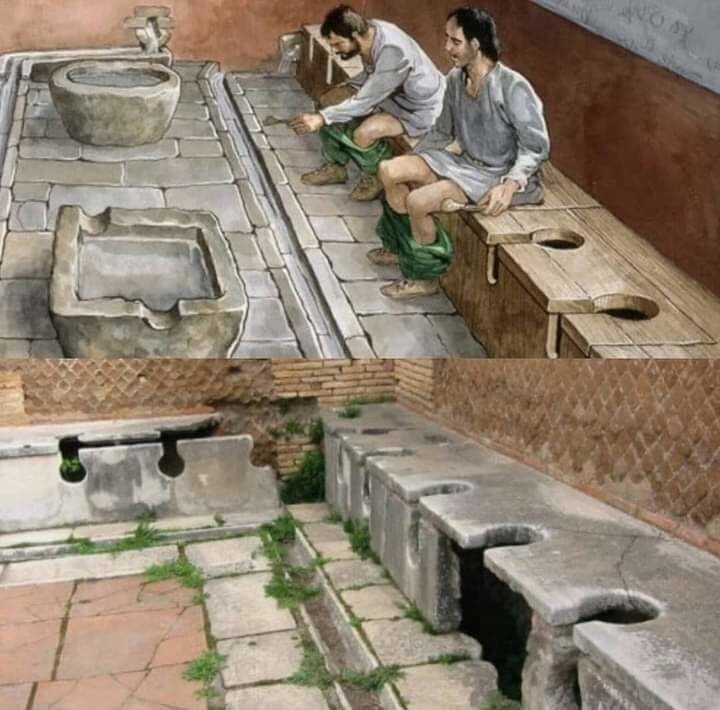
Ancient Roman public toilets
The Roman emperor Nero, demanding additional funds for carrying out major urban work programs in the early years of its management, introduced a tax on urine collectors for their productions, known as vectigal urinae. And although this tax lasted exactly until until the treasury has received the necessary amount of money for urban works, Nero canceled it, so as not to lose the love of citizens.
However, after some time, the urine tax again had to be paid to the citizens of Rome, but not because of the orders of Nero.
In the History of Ancient Rome, urine was a very important ingredient. 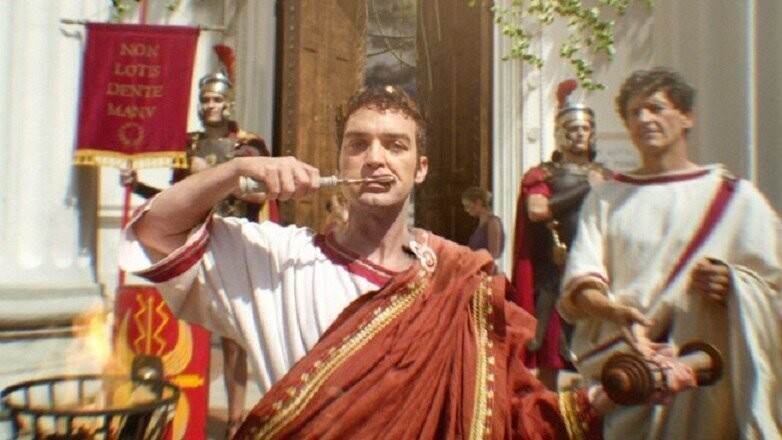
It is very important to say that the Romans very actively used urine as a cleaning agent when washing clothes, when tanning skin and you won't believe even brushing your teeth! Laundry owners put huge earthenware pots for people to relieve their public places, and then collected this "valuable ingredient" for their daily tasks.
The Romans believed that urine whitened their teeth and protected them from caries. That's why they used it to make toothpaste, mixing with mouthwash and pumice stone. It is known that urine contains ammonia, which is found in many cleaning products today means, thanks to which it was possible to easily wash greasy stains with clothes. If you leave urine in an open container, it will deteriorate and then produce ammonia due to contact with air.
In the Roman period, as we said above, urine was used for washing, bleaching clothes, fabrics, leather and had important in the entire textile industry, actively flourishing during the time of the Roman Empire. That is why the taxation of this industry tax brought quite a lot of money to the treasury.
Reintroduction of the tax on urine collection and public toilets 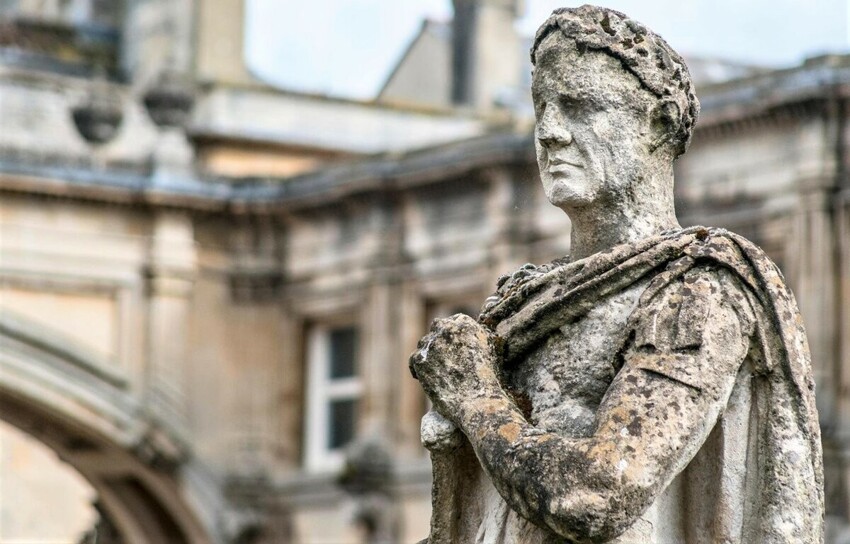
After the suicide of Nero in 68 A.D. e., in Rome began reign chaos. In 69 AD, a civil war broke out, also known as the Year of the Four Emperors, during which the rulers changed, but exactly until the power was acquired Vespasian, the first person to become a Roman emperor without being member of an aristocratic family.
To restore the empire and the empty treasury (after protracted civil war), Vespasian introduced many tax rules and laws to obtain a quick and maximum amount of financial resources, one of which was a tax on urine itself, once introduced Nero and even a tax on the collection of urine from the Roman sewers (Cloac Maxima).
Whoever scooped out urine for their own production must had to pay taxes to collect it from the sewers and process it into valuable raw material through a series of chemical processes, just like those people who bought it for simple everyday tasks. In addition, urine were also collected from public toilets where representatives of wealthy classes and also paid for the tax on visiting this toilet. By the way, the very first public toilet in history was built Emperor Vespasian in 74 AD in Rome.
Titus, son of Vespasian and the next emperor, considered the taxation of urine is disgusting and expressed his dissatisfaction. However, Vespasian threw a bag of coins to his son and asked him if do they smell bad? Titus shook his head, to which Vespasian smiled. said: "But still they came from a tax on urine." 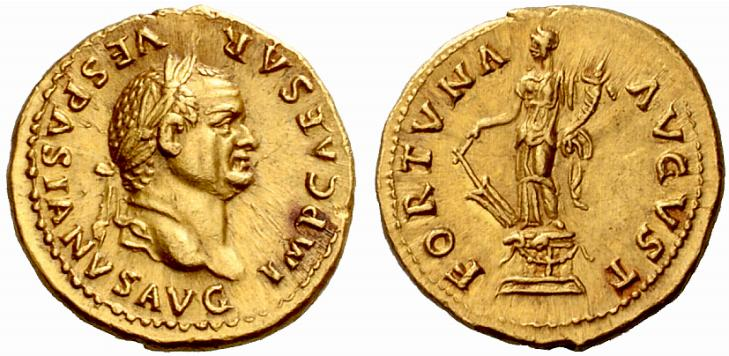
Roman gold coins with the profile of Vespasian
INthe expression "Pecunia non olet", which means "money is not smell, ”is also a well-known saying of the emperor Vespasian. Meaning of this saying is that money is valuable no matter where it comes from. they came. This catchphrase is one of the most famous sayings of Vespasian and is still used today to describe income, obtained by dubious, unfair or illegal means during all over the world.
In the future, the money collected from this tax helped finance the construction of the Roman Colosseum (amphitheatre), built during the 10-year reign of Vespasian.
The funny thing is that the name Vespasian is strong and not common in our time, but it is still used as the name of toilets in France (vespasiennes), Italy (Vespasiani) and Romania (Vespasiene).
While Vespasian's tax did not please the public, especially to urine collectors, textile manufacturers and tanners, income from taxes helped ensure the continuity of the Roman Empire and the power for many years to come.
Add your comment
You might be interested in:



